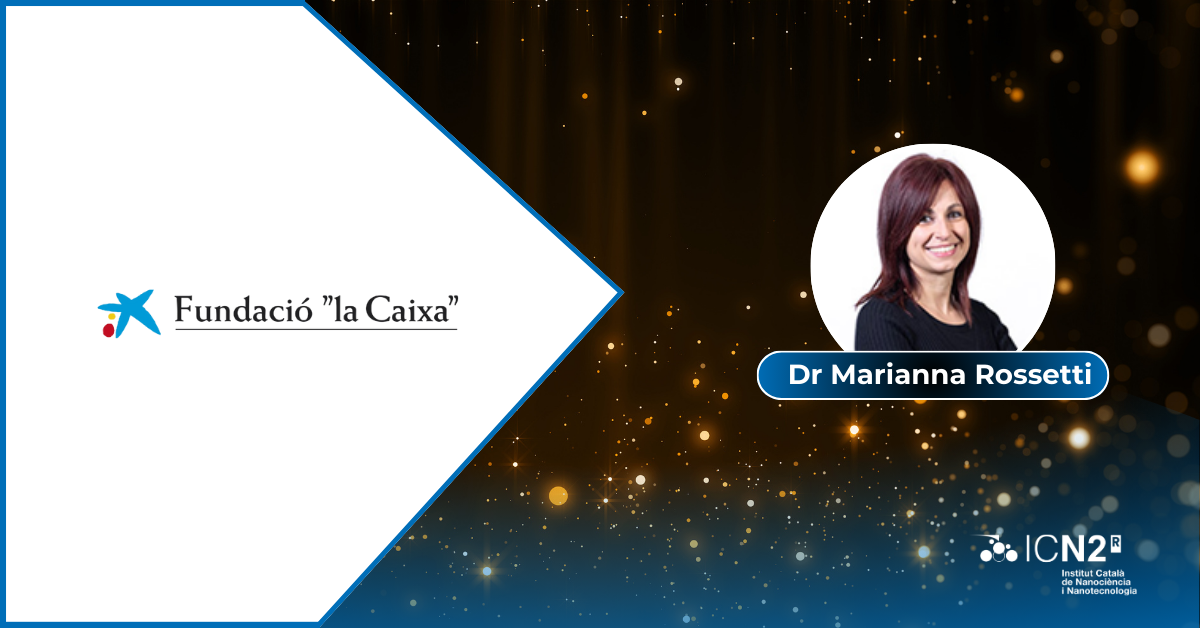Wednesday, 02 April 2025
Dr Marianna Rossetti Receives the Postdoctoral Junior Leader Fellowship from "la Caixa" Foundation
With this funding, she will lead an innovative project to develop nanostructured platforms for cost-effective and efficient human papillomavirus (HPV) detection.

Dr Marianna Rossetti, postdoctoral researcher in the ICN2 NanoBioelectronics and Biosensors Group, has been awarded the prestigious Postdoctoral Junior Leader fellowship by "la Caixa" Foundation. This programme aims to promote scientific excellence by supporting researchers who wish to continue their careers in the STEM fields in Spain or Portugal. With this fellowship, Dr Rossetti will lead the project "CRISPR-Enhanced Graphene-Based Electrochemical Nano-Arrays for Reliable, Non-Invasive and Low-Cost HPV Screening and Cancer Prevention".
To find out more about her background and the project she will be leading, Dr Rossetti answered a few questions:
Could you briefly summarise your academic background and professional career to date?
"I have a background in chemistry and obtained my master's degree on the same field from the Sapienza University of Rome in 2009. After gaining experience in industry, I completed my PhD at the University of Rome Tor Vergata and defended my thesis in 2018. Subsequently, I was awarded several research fellowships that allowed me to focus on nanotechnology, particularly its application in disease diagnostic tools.
In 2022, I joined ICN2 as a Marie Curie Fellow to lead the SERENA project within the Nanobioelectronics and Biosensors Group headed by Prof. Arben Merkoçi. I am currently continuing my research at ICN2 within the European 2D-BioPAD project, focusing on Alzheimer's disease diagnostics.”
Tell us more about the project you will be leading thanks to this fellowship…
"The project aims to develop an electrochemical platform capable of simultaneously detecting and genotyping up to 30 variants of the human papillomavirus (HPV), a leading cause of cancer worldwide affecting both men and women. It will also enable direct detection from urine samples and self-collected vaginal swabs.
The proposed platform combines cutting-edge gene editing technology, known as CRISPR, DNA nanotechnology, graphene-based nanocomposites and electrochemical detection. It aims to position itself as an efficient and cost-effective alternative to traditional testing, thereby facilitating access to screening and contributing to the prevention of HPV-related cancers.”
This recognition of Dr Rossetti's work reinforces ICN2's commitment to cutting-edge research. We would like to congratulate her on this remarkable achievement and are confident that her project will have a significant impact in such a strategic area as next-generation diagnostic and screening devices.

